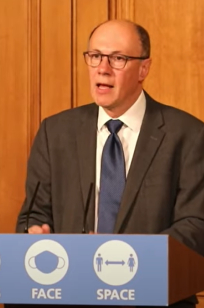Divert NHS funding to social care for bigger impact, says NHS Confederation
 Topping up social care spending would have a greater impact on the NHS, he added, as it would increase the number of care packages available, allowing more patients to leave hospital when it is appropriate and safe.
Topping up social care spending would have a greater impact on the NHS, he added, as it would increase the number of care packages available, allowing more patients to leave hospital when it is appropriate and safe.
The confederation’s call came as NHS England monthly performance figures showed the service is under rising pressure, with a record number of 999 calls and the highest-ever A&E activity for October.
In a confederation survey, NHS leaders said pressure on their services was unsustainable, but greater backing for social care was the single measure that would do most to alleviate this as the health service enters the winter months. They added that the funding should be targeted at effective discharge arrangements.
The confederation said one in five beds in some hospitals are occupied by patients who are medically fit to be discharged, but for whom there is no care package available in the community.
‘The number one measure that ministers could take now is to provide extra funding and support to social care services,’ Mr Taylor (pictured) said. ‘This includes making more money available to increase the wages of care assistants to help fill staffing vacancies and to increase their fuel duty allowance so that more care staff are persuaded back into the sector.
‘We welcomed the government’s recent extra investment in the NHS, but we cannot immediately buy our way out of this potential crisis due to the 90,000 plus vacancies we are carrying in the NHS. That means it would be better to allocate more immediate funding from the recent funding settlement to social care services as boosting the numbers of care staff will have much greater impact on reducing pressures on hospitals and other parts of the NHS.’
In the confederation survey, 88% of NHS leaders said pressure on services was unsustainable, while 87% said shortfalls in staffing was putting patients at risk. Leaders named primary and urgent and emergency care as the main reasons for their concern. The confederation added that bed occupancy rates were rising, and more patients are in hospital unnecessarily due to the lack of availability of domiciliary or care home places, while ambulance handover delays had increased.
The latest monthly figures show demand for A&E is growing, with almost 2.2 million people attending emergency departments in October – 35.5% more than October 2020 and around the same level as October 2019. Emergency admissions were 7% higher than a year ago, but 8% lower than the pre-Covid October 2019.
At the end of September, 5.8 million patients on referral to treatment pathways were waiting for treatment, and just over two-thirds had waited up to 18 weeks. Over 300,000 had waited a year or more. However, more than 1.6 million patients started a new treatment pathway, but clock starts remained down compared with pre-Covid figures. Though referral to treatment activity began to rise again in September, the waiting list grew by 100,000 compared with August.
 NHS national medical director Stephen Powis (pictured) said: ‘With the highest number of 999 calls ever answered for a single month, the busiest October on record for major A&E and the rollout of boosters as part of the successful NHS vaccination programme, there is no doubt pressure on the health service remains incredibly high.
NHS national medical director Stephen Powis (pictured) said: ‘With the highest number of 999 calls ever answered for a single month, the busiest October on record for major A&E and the rollout of boosters as part of the successful NHS vaccination programme, there is no doubt pressure on the health service remains incredibly high.
‘But despite high demand, NHS staff are going above and beyond to see more patients and deliver millions more tests, checks, treatments and operations. Increasing numbers are coming forward for treatment and this is expected to go up, but it remains really important people do not delay seeking help from the NHS if they feel unwell.’
After the publication of the performance figures, Mr Taylor said: ‘Unless we take action now this pressure is going to get even worse in the deepest midwinter months and we would urge the government to everything it can to prevent the NHS from plunging further into crisis.
‘As our sister service, social care also urgently needs extra funding and support now to ensure that medically fit patients can safely be discharged into the community freeing up capacity in the NHS.’
NHS Providers deputy chief executive Saffron Cordery said the performance figures showed why trusts were increasingly worried about winter. ‘Trust leaders are also concerned about the crisis in social care, which the government must focus on to ensure vulnerable people are kept well and able to return home safely with support after treatment.
‘The NHS is running hot already, ahead of what is expected to be an extremely difficult winter.’
Related content
We are excited to bring you a fun packed Eastern Branch Conference in 2025 over three days.
This event is for those that will benefit from an overview of costing in the NHS or those new to costing and will cover why we cost and the processes.